Gaza
United Nations agencies together with Palestinian health authorities on Sunday began a large-scale campaign of vaccinations against polio in the Gaza Strip.
Israel and Hamas agreed to brief pauses in their 11-month war to allow it to go ahead after a first case of the virus in 25 years was registered in the enclave.
The World Health Organization (WHO) last month confirmed that a 10-month-old boy was partially paralysed by the polio virus.
It says the presence of a paralysis case indicates there could be hundreds more who have been infected but are not showing symptoms.
The highly infectious virus is transmitted through contaminated water or food, or contact with an infected person.
Conditions in Gaza are ideal for the spread of polio and other diseases.
It has been largely destroyed by Israel’s counteroffensive, leaving parents struggling to access clean water and enough food for their children.
With most children’s immunisation programmes disrupted by the fighting, Amal Shaheen, the mother of Fedaa Azazi, said she was terrified by news of the polio case.
"Here in the hospital I was keeping my daughter clean. But my other children, who’re in the tent, I didn't know what was happening with them,” she said.
Like other mothers, Shaheen, said she was impatient for the vaccination to arrive and for everyone to receive it.
The immunisation campaign began in central Gaza and will move to other areas in coming days. Fighting will pause for at least eight hours on three consecutive days.
Vaccinating Gaza’s 640,000 children over the three-day period with be a mammoth task, the United Nations said, and the pauses will likely need to extend to a fourth day.
The campaign faces a host of challenges, from ongoing fighting to devastated roads and hospitals shut down by the war.
To be effective, the WHO said at least 90 per cent of children under 10 in Gaza must be immunised in the three-day period.
Around 90 per cent of Gaza's population of 2.3 million people have been displaced within the besieged territory, with hundreds of thousands crammed into squalid tent camps.
Health officials have expressed alarm about disease outbreaks as uncollected garbage has piled up and the bombing of critical infrastructure has sent putrid water flowing through the streets.
In addition, widespread hunger has left people even more vulnerable to illness.
A spokesperson for the UN children's agency, Ammar Ammar, said there was no alternative to a ceasefire.
“It’s not only polio that threatens children in Gaza. Other factors, include malnutrition and the inhuman conditions they are living in,” he said
The vaccinations will be administered at roughly 160 sites across the territory, including medical centres and schools.
Children under 10 will receive two drops of oral polio vaccine in two rounds, the second to be administered four weeks after the first.




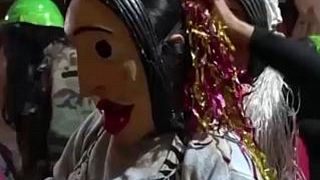
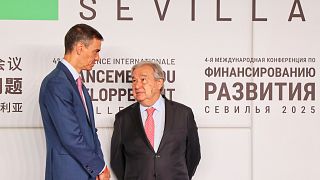

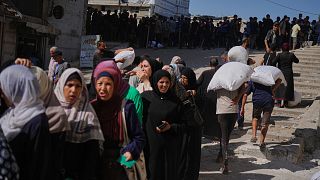
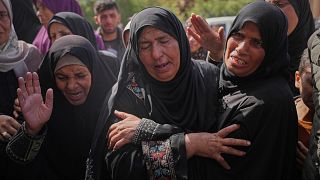
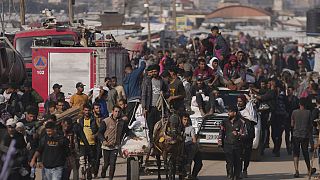



01:30
Trump calls for a Gaza ceasefire deal as some Palestinians are skeptical
01:12
UN chief warns of high number of armed conflicts
01:30
Israeli military says seven soldiers killed during operations in Gaza
01:05
Study finds millions of children at risk as global vaccine rates fall
Go to video
China, Egypt FMs discuss Middle East escalation in phone call
01:16
Israel blasts France for covering defense booths at Paris Air Show